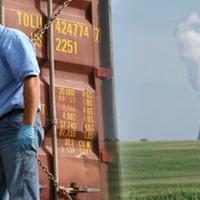(The Center Square) – There is another push to expand nuclear energy in Illinois.
Senate Republicans have introduced Senate Bill 1527 that would allow for the expansion of nuclear power beyond small modular reactors. The measure removes provisions prohibiting the construction of new nuclear power reactors with a nameplate capacity of more than 300 megawatts of electricity.
State Sen. Terri Bryant, R-Murphysboro, said nuclear power could be a win-win for Illinois residents and businesses.
“Lower energy costs, economic expansion, and workforce stability will provide meaningful benefits for every household in our state,” said Bryant.
Illinois is home to six nuclear power plants, the most of any state.
“However, Illinois has been slow to embrace new nuclear development, and we need to change that,” said state Sen. Sally Turner, R-Lincoln. “The demand for electricity is growing at a historic pace driven by advancements in technology and industry.”
One measure, Senate Bill 94, would create the Data Center Construction by Foreign Adversaries Act, which aims to prevent foreign companies from constructing data centers in Illinois and putting a strain on the power grid.
“To ensure that data centers owned by foreign adversaries are not stressing our already fragile energy grid,” state Sen. Sue Rezin, R-Morris, said was the purpose of the measure.
Illinois Senate Republicans have introduced Senate Bill 1527 that would allow for the expansion of nuclear power beyond small modular reactors. The measure removes provisions prohibiting the construction of new nuclear power reactors with a nameplate capacity of more than 300 megawatts of electricity.
David Kraft, with the Chicago-based Nuclear Energy Information Service, said there is a misguided approach to energy, and what is needed is not more nuclear reactors or even more renewable energy.
“What needs to take place really fast is improving the transmission grid and getting access to the projects that are already in the pipeline that can’t get on the grid,” said Kraft.
Kraft notes that the federal government still does not have a permanent solution for the nuclear waste piling up across the country.


